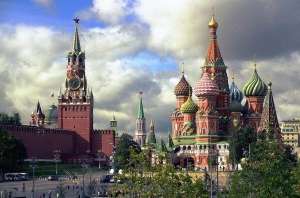The Swiss franc reached, yesterday, the highest level against the euro, in the last almost ten years, in the context of the turbulences on the financial markets, against the background of fears regarding a possible recession in the USA and the geopolitical tensions in the Middle East, which attracted investors towards the safe haven currency, Reuters reports, according to Agerpres.
The franc has appreciated by approximately 3.5% against the euro since last Wednesday, when the US Federal Reserve (Fed) kept interest rates unchanged. Yesterday, the Swiss currency traded at 1.0856 euros, the highest level since January 2015, when the Swiss National Bank (SNB) removed the threshold of 1.20 francs for one euro.
A spokesman for the SNB declined to comment on the franc's appreciation or whether the Swiss National Bank might intervene in the market to stop the currency's appreciation.
This year, the SNB has cut interest rates twice, amid concerns among Swiss manufacturers that the appreciation of the franc is putting pressure on their key exports.
Maxime Botteron, an economist at UBS, said recently that when the SNB cuts interest rates, the appreciation of the Swiss franc can lead the SBB to buy foreign currency.
However, if officials are seriously concerned about the appreciation of the franc, the SNB may cut the interest rate, which currently stands at 1.25%. "Therefore, foreign exchange purchases will probably be limited," added Botteron.
• Record half-yearly profit for the Bank of Switzerland
The Swiss National Bank on July 31 reported its biggest half-year profit since its establishment 117 years ago, with gains in the first three months of the year offsetting losses in the second quarter of 2024, according to Reuters. The profit of 56.8 billion Swiss francs ($64.48 billion) in the first half of 2024 comes from stock market developments, dividends and interest earned by the SNB from investments of 740 billion Swiss francs in bonds and shares, including stakes held in American giants Nvidia Corporation and Apple Inc.
Profits were also supported by the depreciation of the Swiss franc earlier in the year, which increased the value of SNB's earnings abroad when converted into Swiss francs. The gold holdings brought the Swiss National Bank a profit of 12.2 billion Swiss francs, as the price of the yellow metal rose by 20% this year amid tensions in the Middle East. SNB owns 1,040 tons of gold.
But in the second quarter of 2024, the SNB reported losses of two billion francs amid falling bond prices and the appreciation of the Swiss currency.
The SNB's Swiss franc positions caused the institution losses of 4.5 billion Swiss francs in the first half of 2024, mainly because it had to pay interest on commercial bank deposits.
"The financial results of the SNB depend to a large extent on the developments on the stock, foreign exchange, capital markets and the gold quotation. Significant fluctuations are therefore expected", it is stated in a press release of the institution.
UBS economist Florian Germanier explained that the appreciation of the national currency could affect the results of the SNB in the coming months.
"We expect the appreciation of the Swiss franc, because other central banks have reduced interest rates, and the tensions in the Middle East increase the demand for safe assets, developments that will significantly influence the results of the SNB in the coming months," said Germanier.
From a legal point of view, SNB has the status of a corporation in which the majority of the shares are owned by the Swiss Federal Government and the 26 cantons. There are also around 2,000 private investors who receive dividends but have extremely limited voting rights.
In June, the Swiss Government announced that the future president of the SNB, Martin Schlegel, will take over his duties on October 1, according to Bloomberg. 47-year-old economist Martin Schlegel will replace Thomas Jordan until 2027, who will resign on September 30. Schlegel, who is currently the vice president of the SNB, emphasized his commitment to the Swiss National Bank's mandate of ensuring price stability, defined as an inflation rate of 0-2%.
"We will make sure at the SNB that prices remain stable, that there will be no high inflation, but no deflation either. Price stability is beneficial for the entire country, it provides security for companies and protects households and the population from the loss of purchasing power," Schlegel told journalists in Bern.
Schlegel was seen as the most likely candidate, both inside and outside the Swiss National Bank, where he started his career in 2004 and was promoted to vice president in August 2022. He was perceived as Thomas Jordan's preferred choice .
In March, SNB announced that Thomas Jordan will resign in September, after more than 12 years at the head of the institution. Harvard-educated economist Thomas Jordan, 61 years old, is the longest-serving president of the Swiss National Bank. He took office in January 2012, in a period of turbulence, caused by a series of crises and the almost constant struggle to stop the appreciation of the franc.




























































